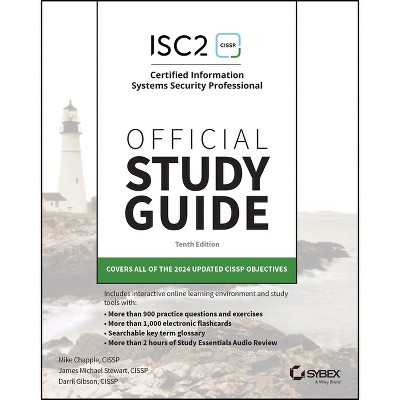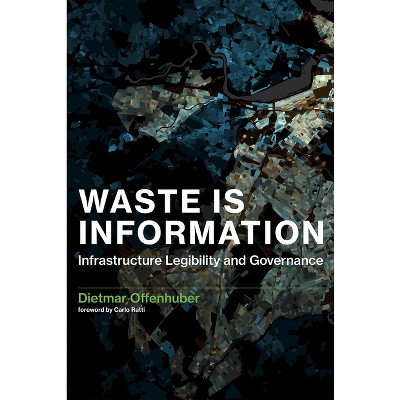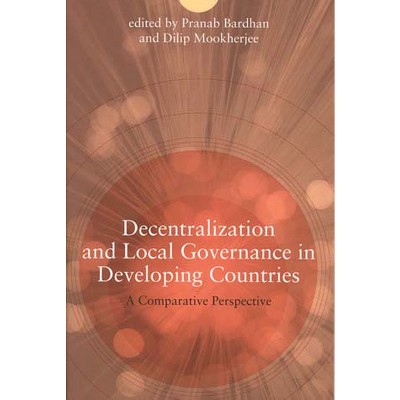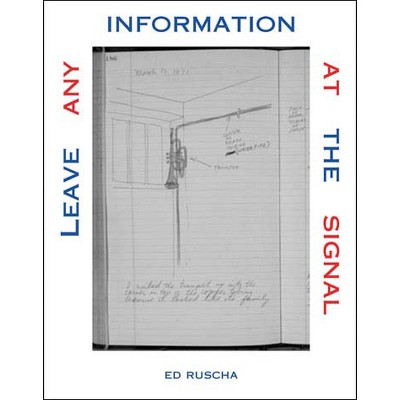Governance and Information Technology - by Viktor Mayer-Schonberger & David Lazer (Paperback)

About this item
Highlights
- Experts discuss moving beyond the notion of electronic government and its focus on technology and efficiency to a broader concept of "information government" that incorporates the role of information flows within government, between government and citizens, and among citizens themselves.Developments in information and communication technology and networked computing over the past two decades have given rise to the notion of electronic government, most commonly used to refer to the delivery of public services over the Internet.
- About the Author: Viktor Mayer-Schönberger is Associate Professor of Public Policy at the John F. Kennedy School of Government at Harvard University and chairs the Rueschlikon Conferences on Information Policy.
- 328 Pages
- Computers + Internet, Information Technology
Description
About the Book
Experts discuss moving beyond the notion of electronic government and its focus on technology and efficiency to a broader concept of "information government" that incorporates the role of information flows within government, between government and citizens, and among citizens themselves.Book Synopsis
Experts discuss moving beyond the notion of electronic government and its focus on technology and efficiency to a broader concept of "information government" that incorporates the role of information flows within government, between government and citizens, and among citizens themselves.Developments in information and communication technology and networked computing over the past two decades have given rise to the notion of electronic government, most commonly used to refer to the delivery of public services over the Internet. This volume argues for a shift from the narrow focus of "electronic government" on technology and transactions to the broader perspective of information government--the information flows within the public sector, between the public sector and citizens, and among citizens--as a way to understand the changing nature of governing and governance in an information society. The chapters discuss the interplay between recent technological developments and evolving information flows, and the implications of different information flows for efficiency, political mobilization, and democratic accountability. The chapters are accompanied by short case studies from around the world, which cover such topics as electronic government efforts in Singapore and Switzerland, the U.S Environmental Protection Agency's effort to solicit input on planned regulations over the Internet, and online activism "cyberprotesting" globalization.
Contributors
Robert D. Behn, Maria Christina Binz-Scharf, Herbert Burkert, Lorenzo Cantoni, Cary Coglianese, Martin J. Eppler, Jane E. Fountain, Monique Girard, Åke Grönlund, Matthew Hindman, Edwin Lau, David Lazer, Viktor Mayer-Schönberger, Ines Mergel, Gopal Raman, David Stark, Sandor Vegh, Darrell M. West
Review Quotes
"So you thought information technology in the form of 'e-government' would save taxpayer dollars, improve government performance, increase transparency and accountability, and promote democratic participation--and all in a hurry too? Some first-rate scholars of the subject show how the several truths about these matters are much more complicated, and the reasons for them sometimes paradoxical."--Eugene Bardach, Department of Public Policy, University of California, Berkeley
"The e-governance revolution has transformed the way that government commonly delivers basic services. But has it transformed democracy? This is a first-class study of the complex processes of information flows between citizens and government. Drawing upon well-known experts and a diverse range of cases, the study provides provocative and important insights into processes of political communications, the uses and limits of information technologies, and the transformation of modern governments."--Pippa Norris, Director, Democratic Governance Group, Bureau for Development Policy United Nations Development Programme
"The editors of "Governance and Information Technology" have assembled a strong juxtaposition of general overviews and concrete case studies to critically examine ways in which information and communication technologies are reconfiguring access to information both within government and between governments and citizens. This book not only challenges the idea that new technologies are democratizing access, but also presents alternative conceptions, such as the development of an 'information class', that will shape debate and research on the political implications of e-government."--Professor William H. Dutton, Director, Oxford Internet Institute, University of Oxford
"Through a rich set of essays by leading thinkers, this book advances the next generation of ideas about information technology and government, moving the literature beyond the original, transactional conception of 'electronic government.' The authors bring up to date a thesis extending back to Federalist thought in the U.S., which is that flows of information are central to the exercise of power and indeed form one of the foundations of government."--Bruce Bimber, University of California, Santa Barbara
"The editors of
" So you thought information technology in the form of 'e-government' would save taxpayer dollars, improve government performance, increase transparency and accountability, and promote democratic participation--and all in a hurry too? Some first-rate scholars of the subject show how the several truths about these matters are much more complicated, and the reasons for them sometimes paradoxical." -- Eugene Bardach, Department of Public Policy, University of California, Berkeley
" The e-governance revolution has transformed the way that government commonly delivers basic services. But has it transformed democracy? This is a first-class study of the complex processes of information flows between citizens and government. Drawing upon well-known experts and a diverse range of cases, the study provides provocative and important insights into processes of political communications, the uses and limits of information technologies, and the transformation of modern governments." -- Pippa Norris, Director, Democratic Governance Group, Bureau for Development Policy United Nations Development Programme
" The editors of Governance and Information Technology have assembled a strong juxtaposition of general overviews and concrete case studies to critically examine ways in which information and communication technologies are reconfiguring access to information both within government and between governments and citizens. This book not only challenges the idea that new technologies are democratizing access, but also presents alternative conceptions, such as the development of an 'information class', that will shape debate and research on the political implications of e-government." --Professor William H. Dutton, Director, Oxford Internet Institute, University of Oxford
" Through a rich set of essays by leading thinkers, this book advances the next generation of ideas about information technology and government, moving the literature beyond the original, transactional conception of 'electronic government.' The authors bring up to date a thesis extending back to Federalist thought in the U.S., which is that flows of information are central to the exercise of power and indeed form one of the foundations of government." -- Bruce Bimber, University of California, Santa Barbara
" So you thought information technology in the form of 'e-government' would save taxpayer dollars, improve government performance, increase transparency and accountability, and promote democratic participation--and all in a hurry too? Some first-rate scholars of the subject show how the several truths about these matters are much more complicated, and the reasons for them sometimes paradoxical." --Eugene Bardach, Department of Public Policy, University of California, Berkeley
About the Author
Viktor Mayer-Schönberger is Associate Professor of Public Policy at the John F. Kennedy School of Government at Harvard University and chairs the Rueschlikon Conferences on Information Policy. David Lazer is Associate Professor of Public Policy at the John F. Kennedy School of Government and Director and founder of the Program on Networked Governance at Harvard University. He is the editor of DNA and the Criminal Justice System: The Technology of Justice (MIT Press, 2004).Shipping details
Return details
Trending Computers & Technology Books











